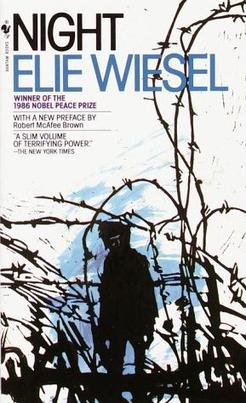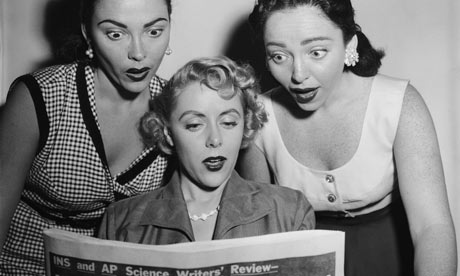When I first started reading McCarthy's book I was very intrigued by the apocalyptic world he described. All the difficult experiences the small family has been through and all the horrible scenes they've encountered have more or less kept the pace moving in a somewhat quick direction. However, so much has happened that it seems as though nothing has happened at all. My intrigue has thus diminished.
 Wiesel wrote in his autobiography his traumatic experience as a jew during the holocaust. In his book, he narrates his life at Auschwitz and how he struggled to survive with his father who eventually died a few months before the camp's liberation. This experience, as Wiesel said 'killed his God' and turned his 'soul and dreams to ashes.' As the world described in The Road 'burned' and the ashes carried by the wind fall on the Father and his son's faces, it's as if the lost dreams of humanity come to haunt them reminding them of the pain and suffering they went through.
Wiesel wrote in his autobiography his traumatic experience as a jew during the holocaust. In his book, he narrates his life at Auschwitz and how he struggled to survive with his father who eventually died a few months before the camp's liberation. This experience, as Wiesel said 'killed his God' and turned his 'soul and dreams to ashes.' As the world described in The Road 'burned' and the ashes carried by the wind fall on the Father and his son's faces, it's as if the lost dreams of humanity come to haunt them reminding them of the pain and suffering they went through.
I want to know more about the world before its apocalypse but I never seem to get enough answers. Questions like these come up: why are there survivors left in a world that is no longer 'the world'? Why would God, if there ever was one, put this test on last remains of humanity? Because the explicit answers were quite scarce, I looked for a better understanding of the situation in other texts. Having thought about these somewhat 'existential' questions, Elie Wiesel's Night popped in my head.
 Wiesel wrote in his autobiography his traumatic experience as a jew during the holocaust. In his book, he narrates his life at Auschwitz and how he struggled to survive with his father who eventually died a few months before the camp's liberation. This experience, as Wiesel said 'killed his God' and turned his 'soul and dreams to ashes.' As the world described in The Road 'burned' and the ashes carried by the wind fall on the Father and his son's faces, it's as if the lost dreams of humanity come to haunt them reminding them of the pain and suffering they went through.
Wiesel wrote in his autobiography his traumatic experience as a jew during the holocaust. In his book, he narrates his life at Auschwitz and how he struggled to survive with his father who eventually died a few months before the camp's liberation. This experience, as Wiesel said 'killed his God' and turned his 'soul and dreams to ashes.' As the world described in The Road 'burned' and the ashes carried by the wind fall on the Father and his son's faces, it's as if the lost dreams of humanity come to haunt them reminding them of the pain and suffering they went through. Everytime I think about the Holocaust, I feel uncomfortable. It's so painful to have the knowledge of the extent to which humans' brutality can reach. Then, when I think about The Road, I realize it resembles the horrors of the Holocaust. Elie Wiesel said "Everything came to an end - man, history, literature, religion, God. There was nothing left. And yet we begin again with night" making it obvious that for the Jewish people who died then, the apocalypse already happened. Humans have already been through the end, 'and yet we begin again with night'.
One of my questions was finally answered. Humans posses this resilience that permits them to live through the end and find a way to continue living. Just as Elie and the The Road's Father and Son, God was lost at some point, coming back just in time to secure their survival. I think once again about why anyone would want to go through "the road" wanting to survive, but realizing the strength of those who survived the holocaust with virtually nothing left to live for, it all makes sense to me.


